To create a job opening, you need to go to the "Recruiting" section and click on the "New job" button.
To create a job opening, simply fill in the required fields and click "Save".
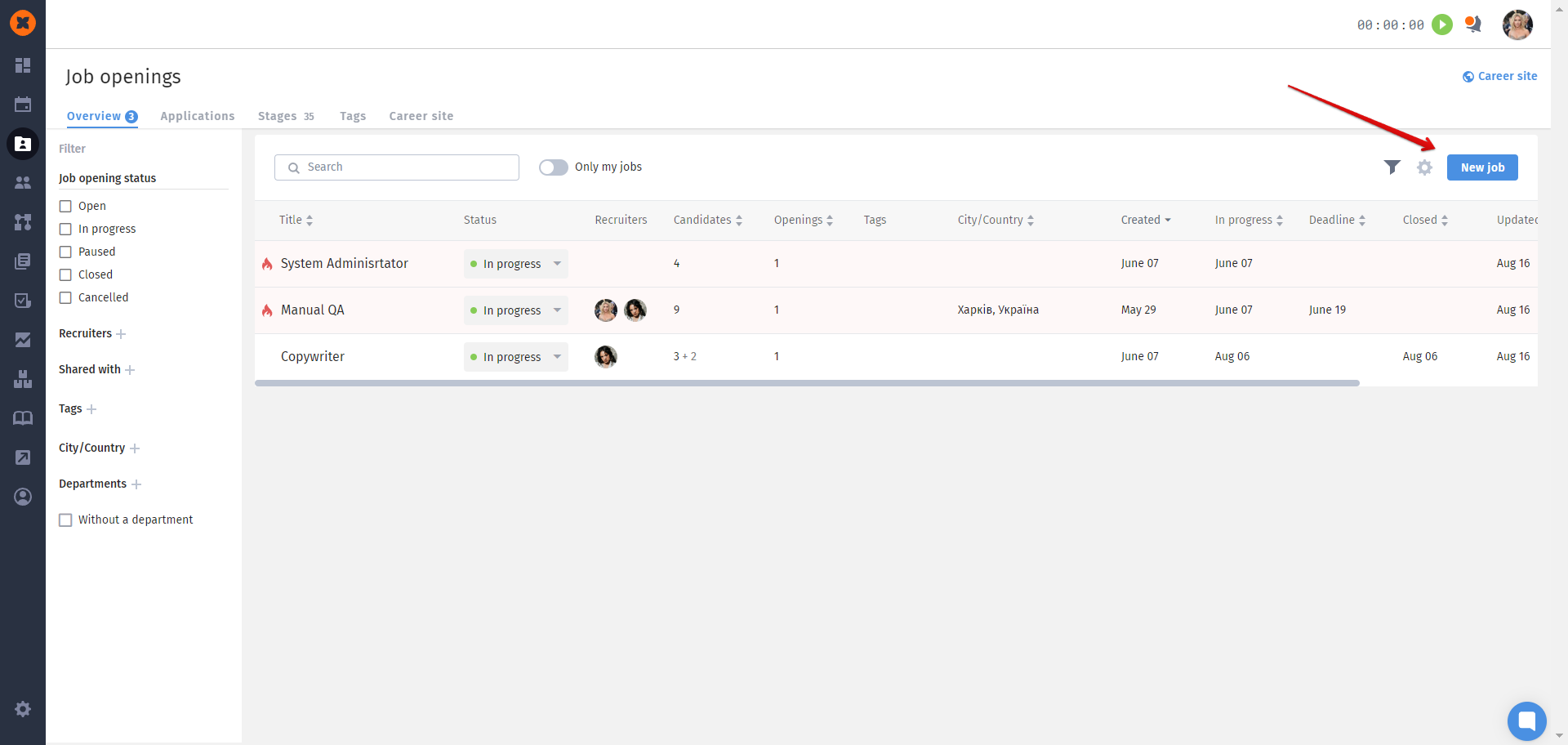
On the job creation page, the following fields will be available:
Application for a job opening - the option to select a job request in the "Approved" status;

Job opening title (mandatory field) - the title of the job opening, which will also be displayed on the career site;
Company name (mandatory field) - the name of the company where the hiring is taking place (available for filling for companies with the "Recruiting" type, which is selected on the "Settings" - "General Settings" page);
Job opening status - the status of the job opening, which affects the job's capabilities and visibility;
Deadline - the date by which the hiring process needs to be completed.
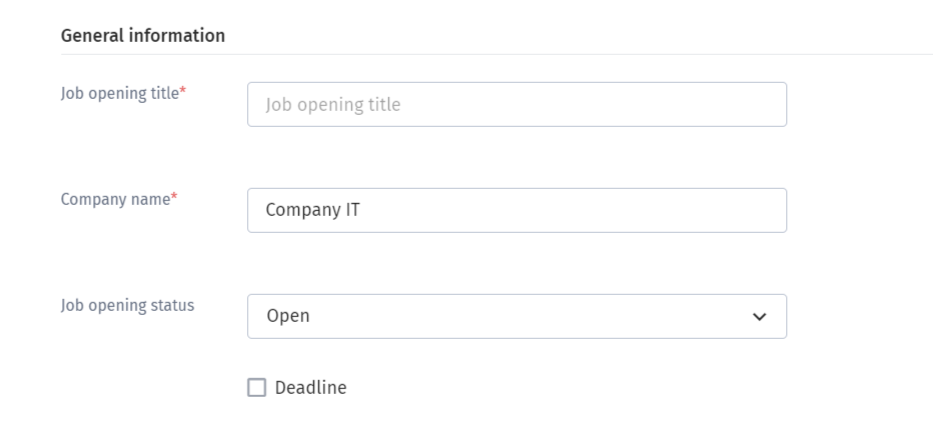
Department- the department to which this job opening belongs. Departments help group vacancies and configure their visibility;
Recruiters - responsible recruiters who receive notifications about new feedback and comments on the job opening. This assignment also allows generating the "Recruiting efficiency" report for each individual recruiter, not just for the vacancies overall;
Share job opening with employees - an additional option that allows sharing the vacancy with the hiring manager. By adding employees to this block, you can also choose which blocks they will see on the candidate card;
For which teams - the ability to select the teams for which the hiring process is initiated. This option does not provide additional capabilities for members of these teams;
Number of positions (mandatory field) - the number of positions that need to be filled in the company within this vacancy;
Work experience - required work experience for candidates;
Employment type - type of employment for this position;
Language proficiency - languages and their proficiency level for potential candidates (the list of languages can be expanded on the "Settings" - "Dictionaries" page).
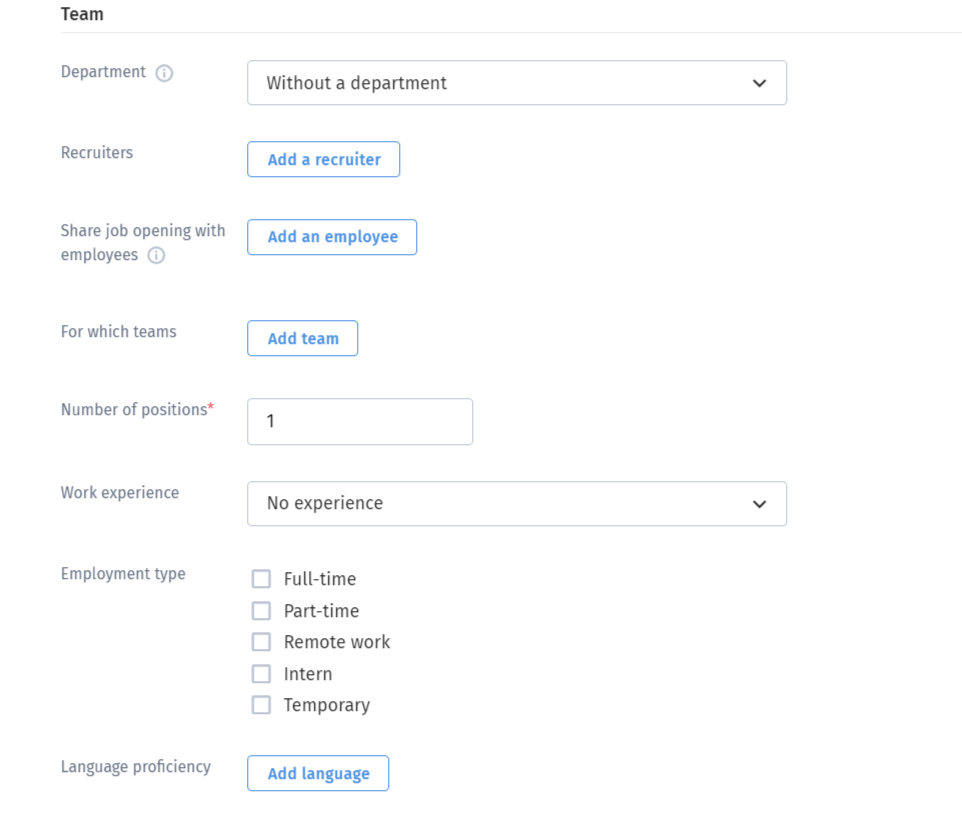
Tags - tags for the vacancy, which can be used to filter vacancies;
Job opening description - a general description of the vacancy;
City/Country - the location where the candidate will work;
Salary - salary range;
Requirements - requirements for candidates;
Responsibilities - responsibilities for this position;
Would be a plus - additional skills of candidates that are not mandatory requirements;
Job conditions - working conditions for this position/in this company;
"Hot job opening" mark - an additional "flame" mark next to the vacancy, which moves vacancies to the top of the list.
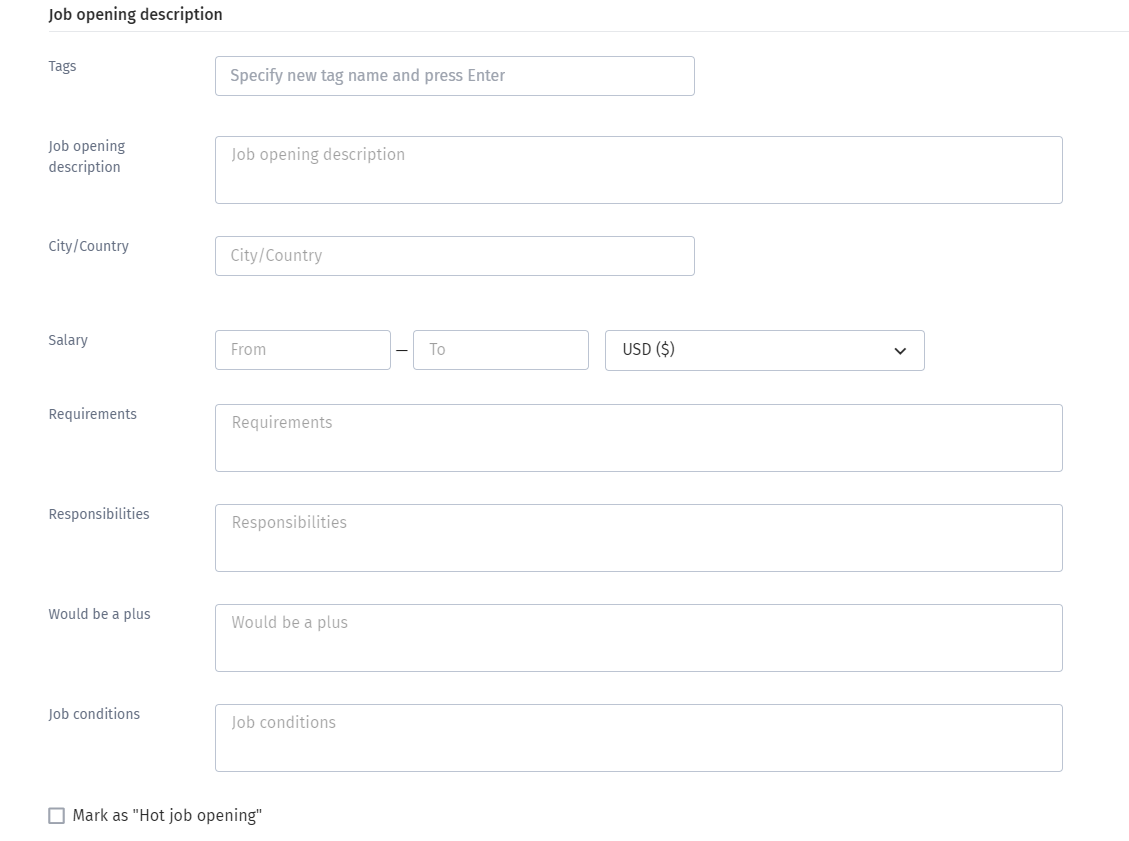
At the next step, the job opening funnel is configured, namely the selection stages that the candidate will go through.
After clicking the "Save" button in the job opening creation form, it is necessary to configure the stages of work on the vacancy.
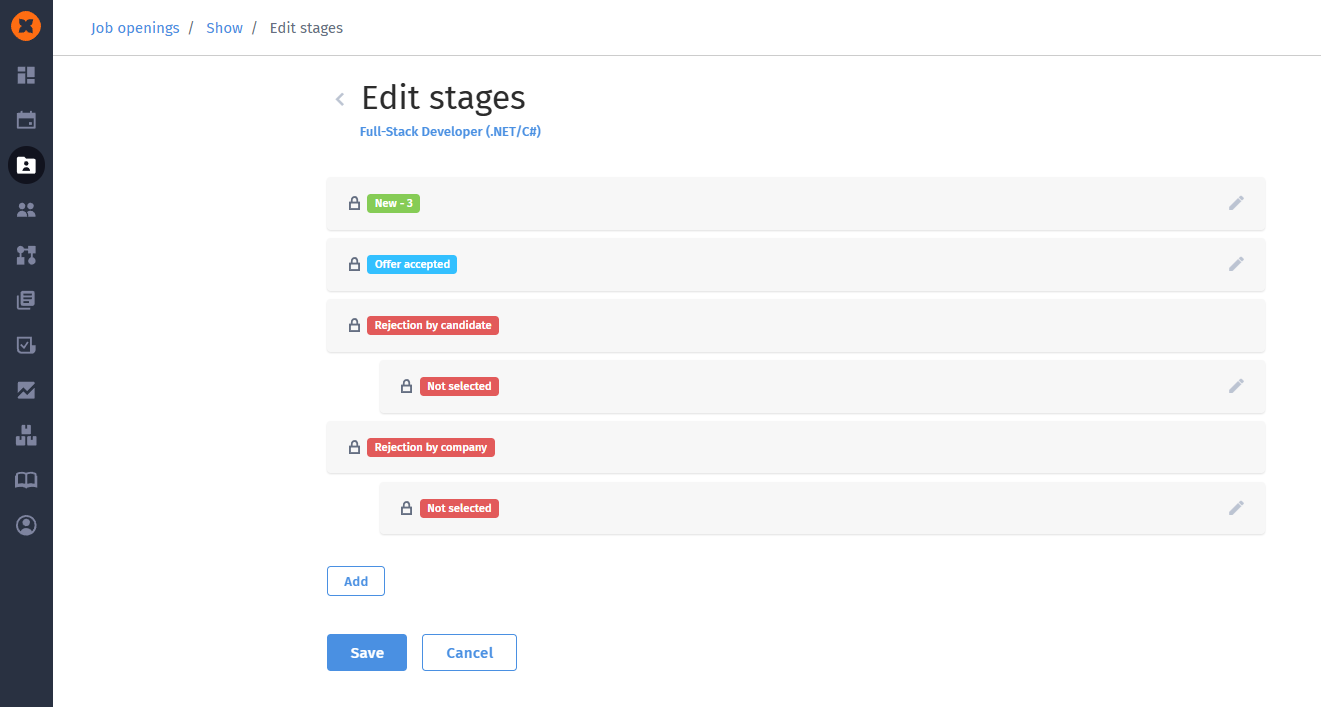
There are three categories of stages in the funnel:
job opening stages;
reason for rejection by candidate;
reason for rejection by company.
At any stage of the selection process, the company or candidate may reject, but the rejection reason itself is not a stage - it's a consequence. Therefore, all rejection reasons should be tracked separately.
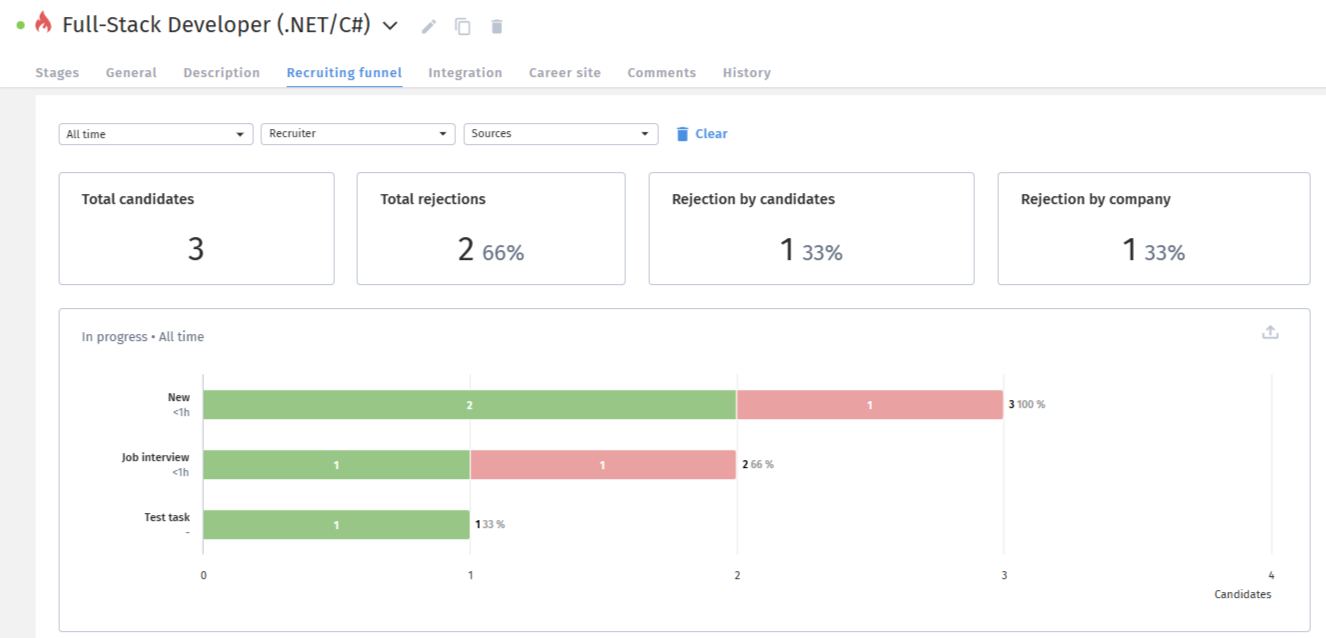
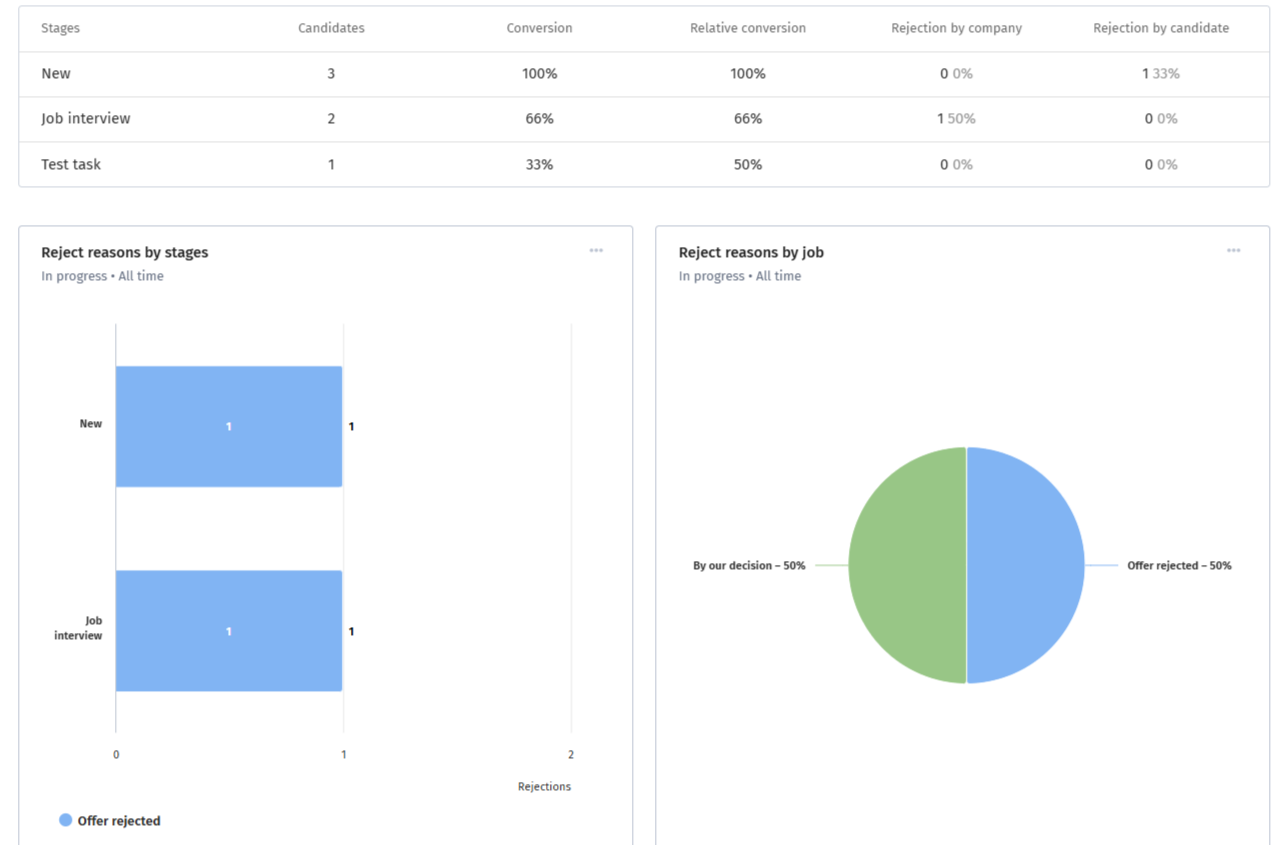
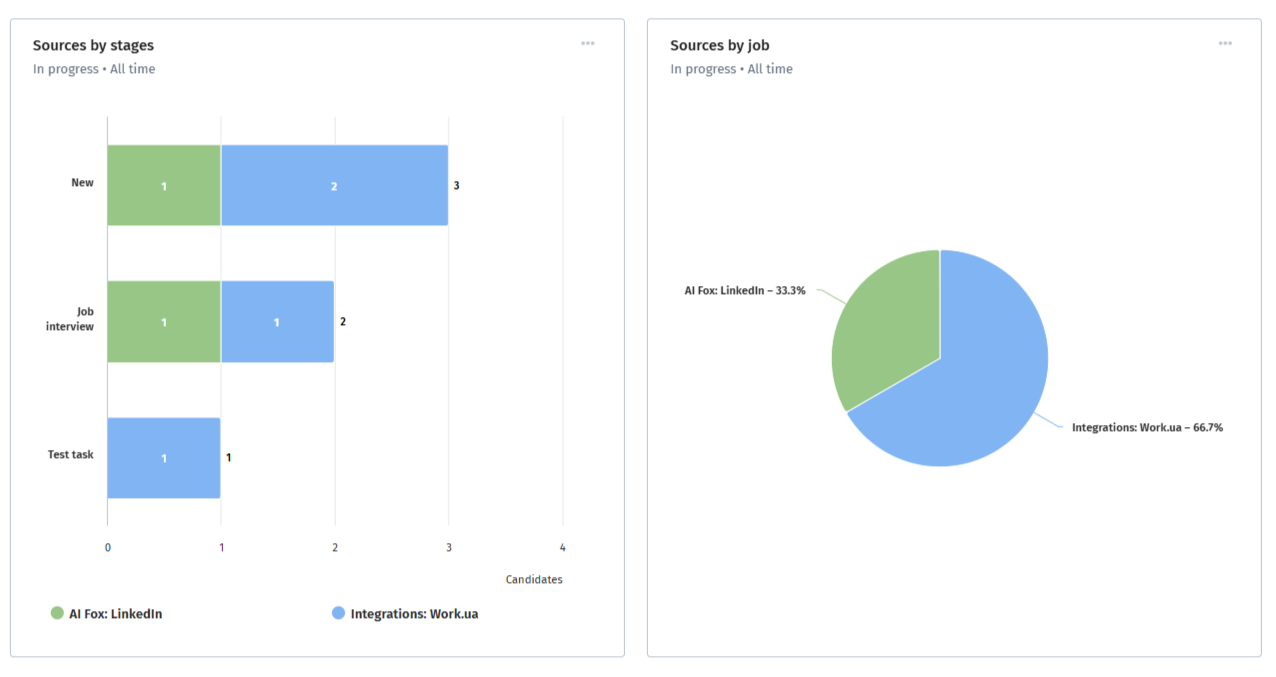
In the funnel, there are also filters available:
by the date of feedback received for the job opening;
by recruiters (employees who moved candidates from one stage to another);
by sources (sources of candidate search).
You can add new stages in the job opening creation and editing form.
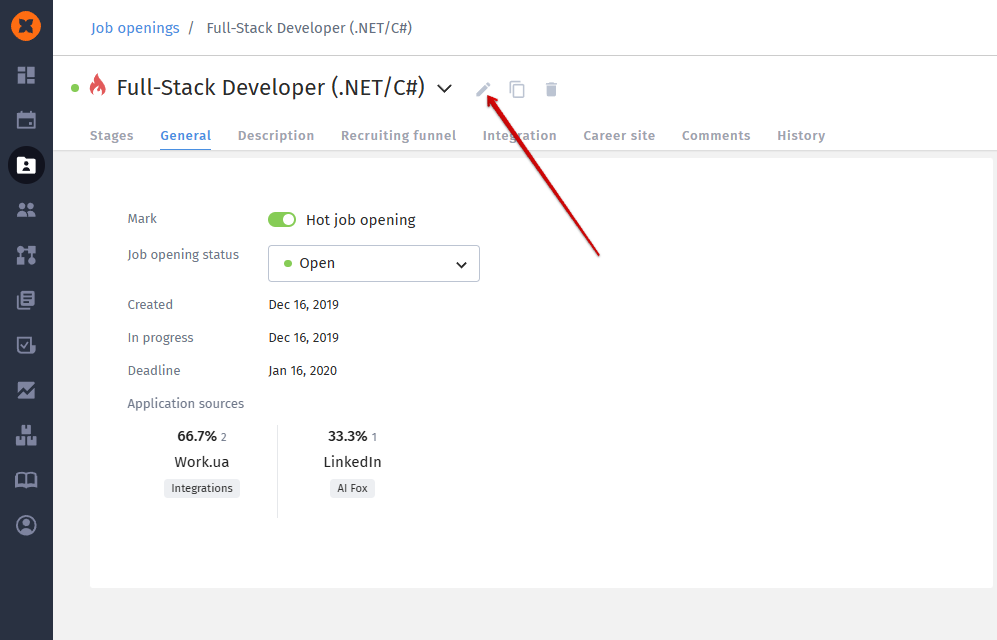

To add the necessary stage, click on the "Add" button and select the category of the stage and its name.
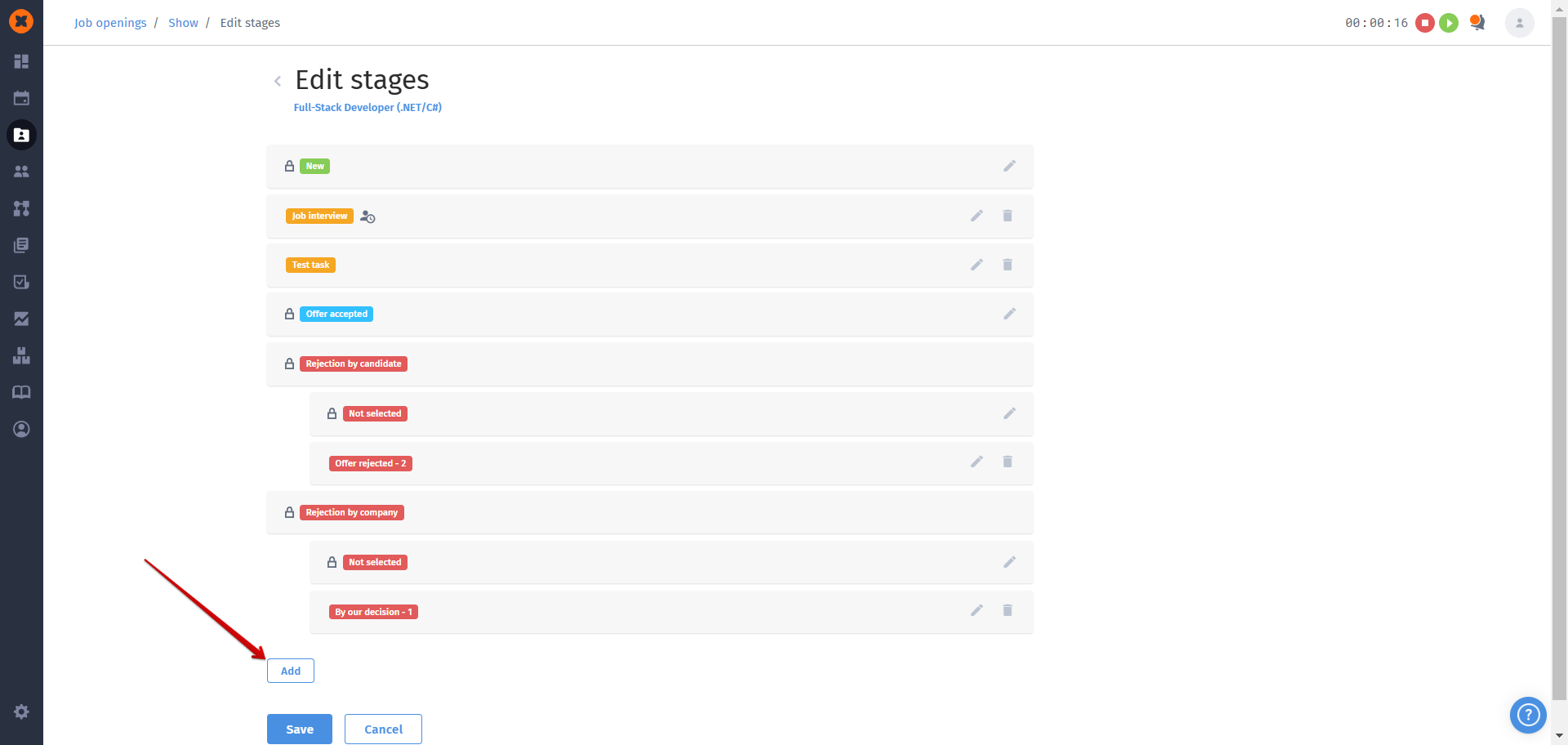
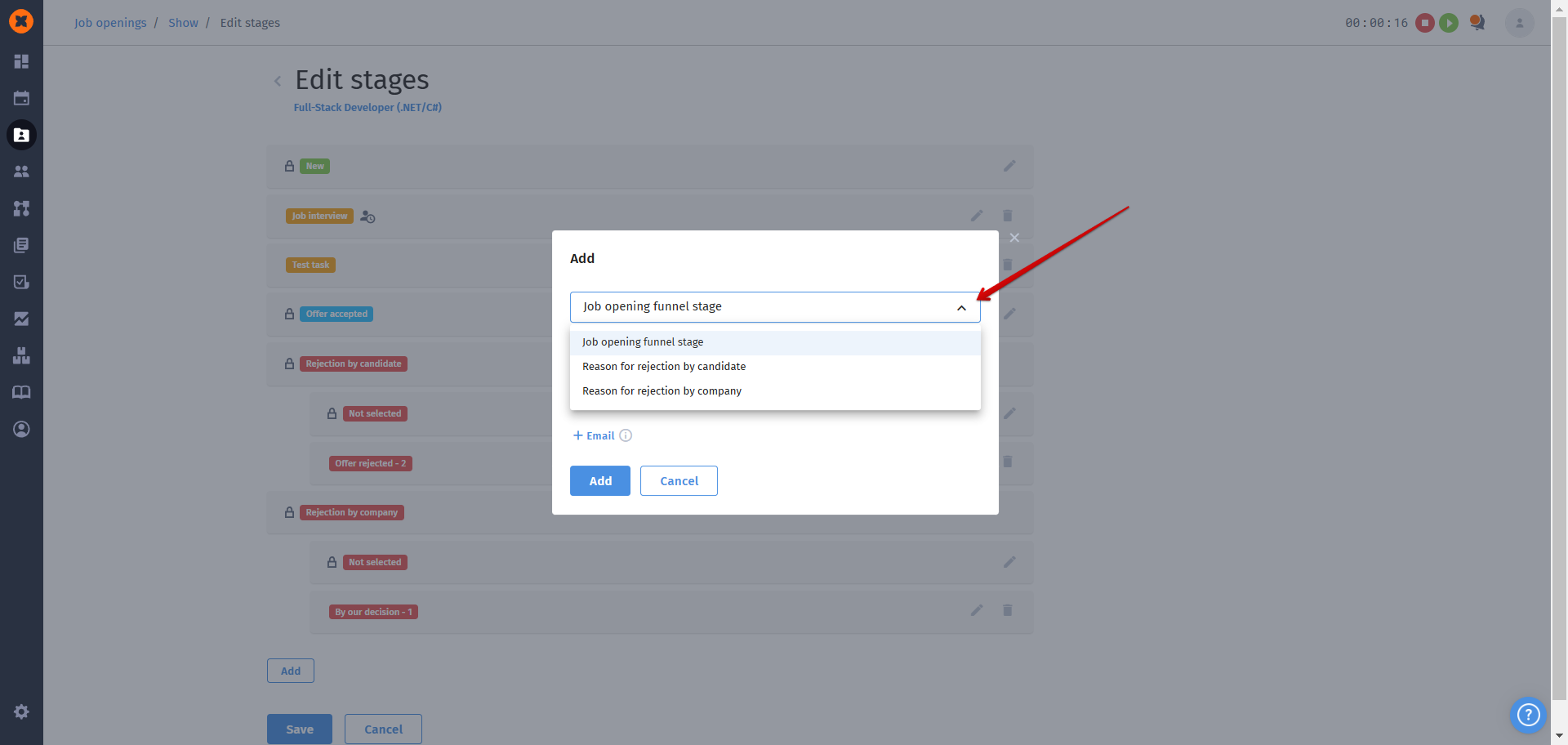
If the required stage is not in the list, you can create it in the same window by entering the name and clicking on the "Add" button. After this, the new stage will appear and be available when creating new vacancies.
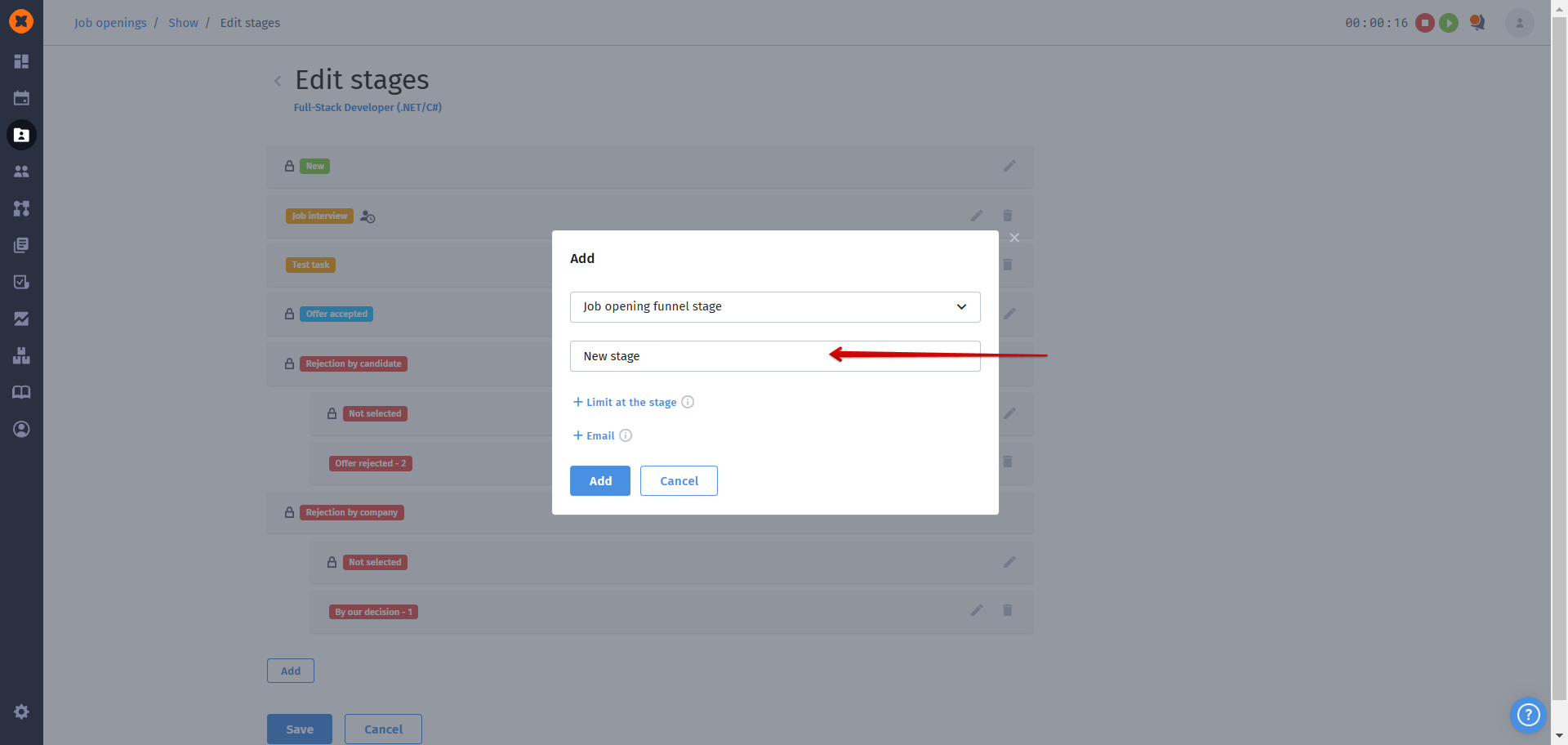
On this page, there is also the option to set a limit for candidates at the stage.
You can enter any number from 1 to 99 days.
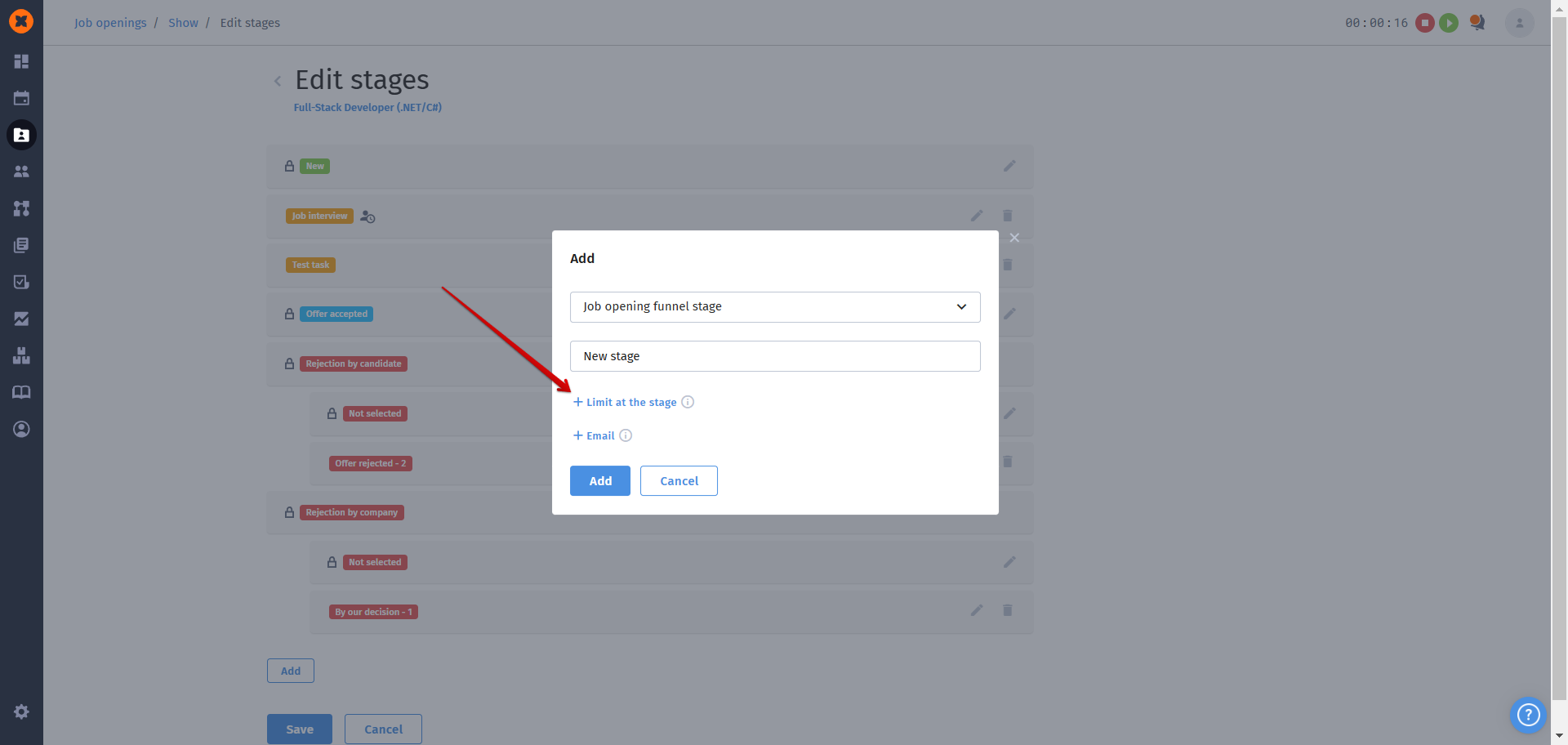
After that, you will see information about the time spent at this stage on the candidate's card.
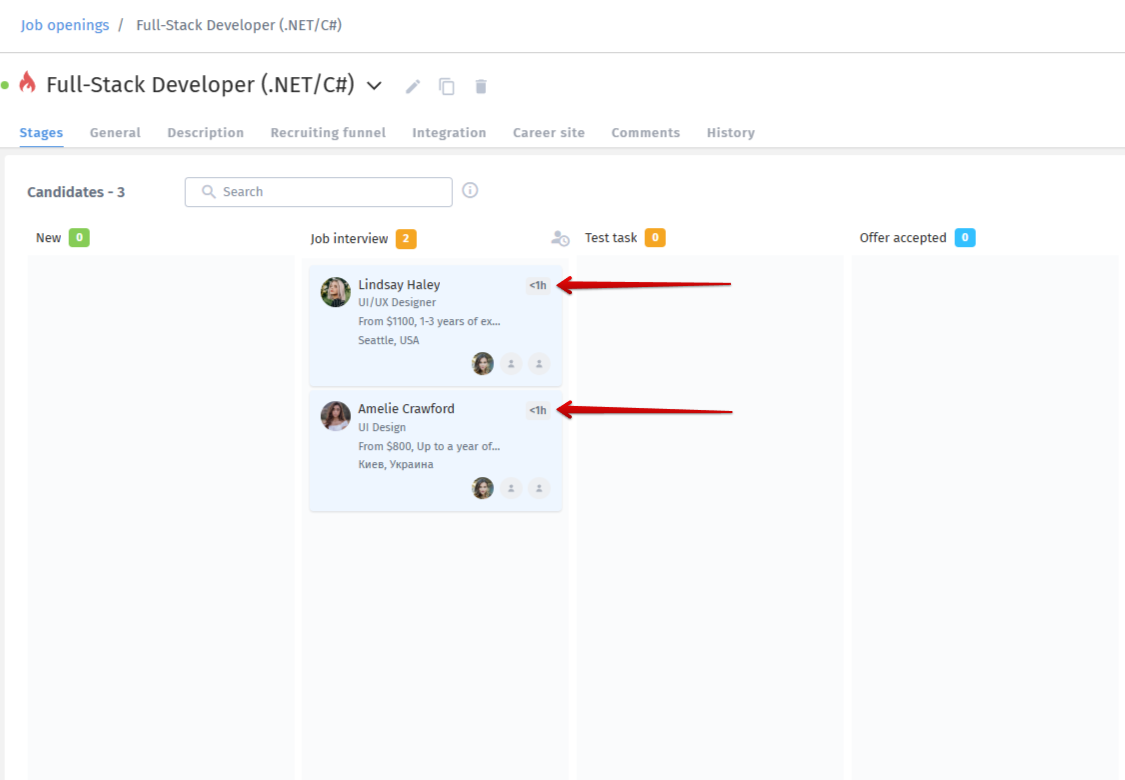
Also, on this page, you can set up automatic email sending to the candidate when their status changes. You can read more about this in the “Email templates for employees and candidates“ article.
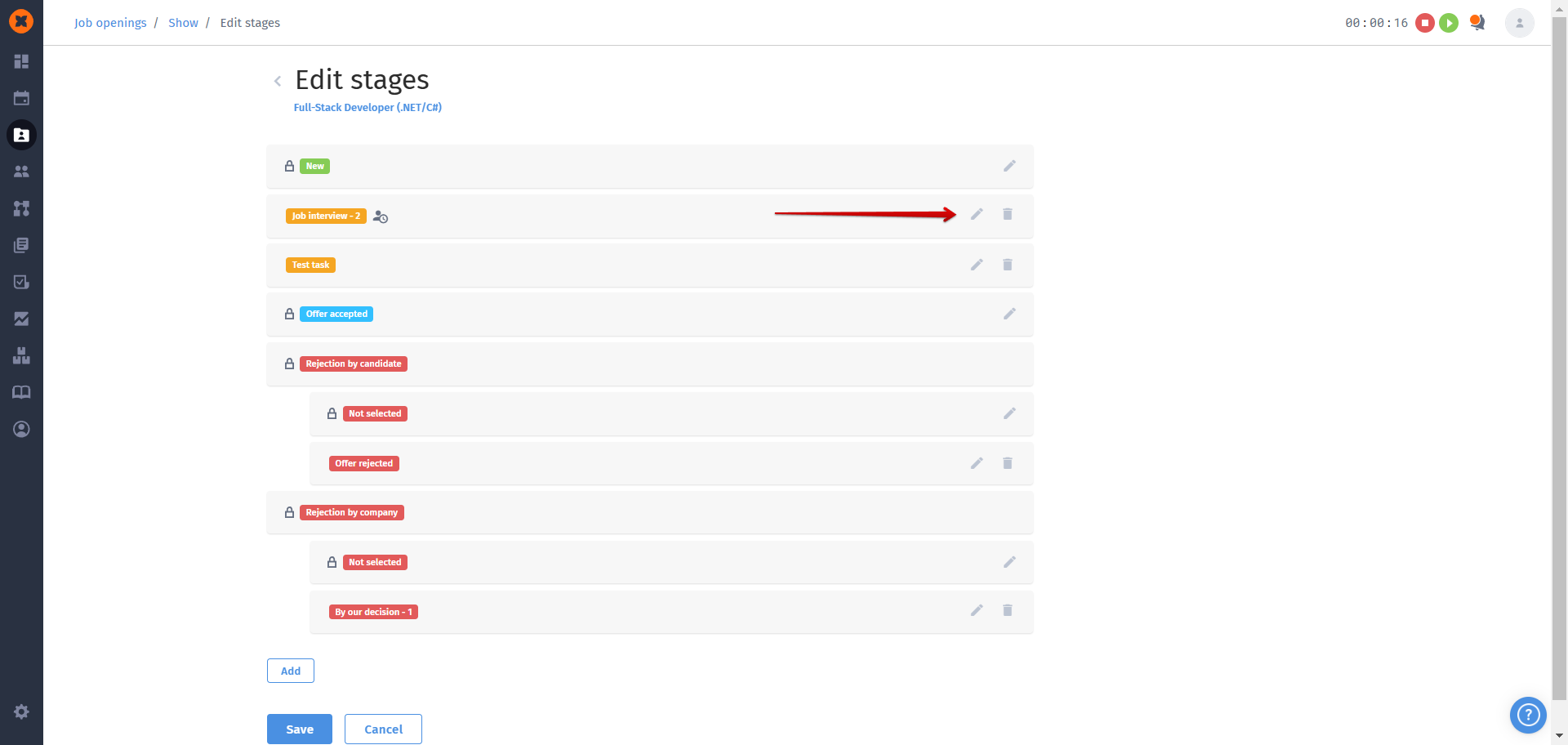
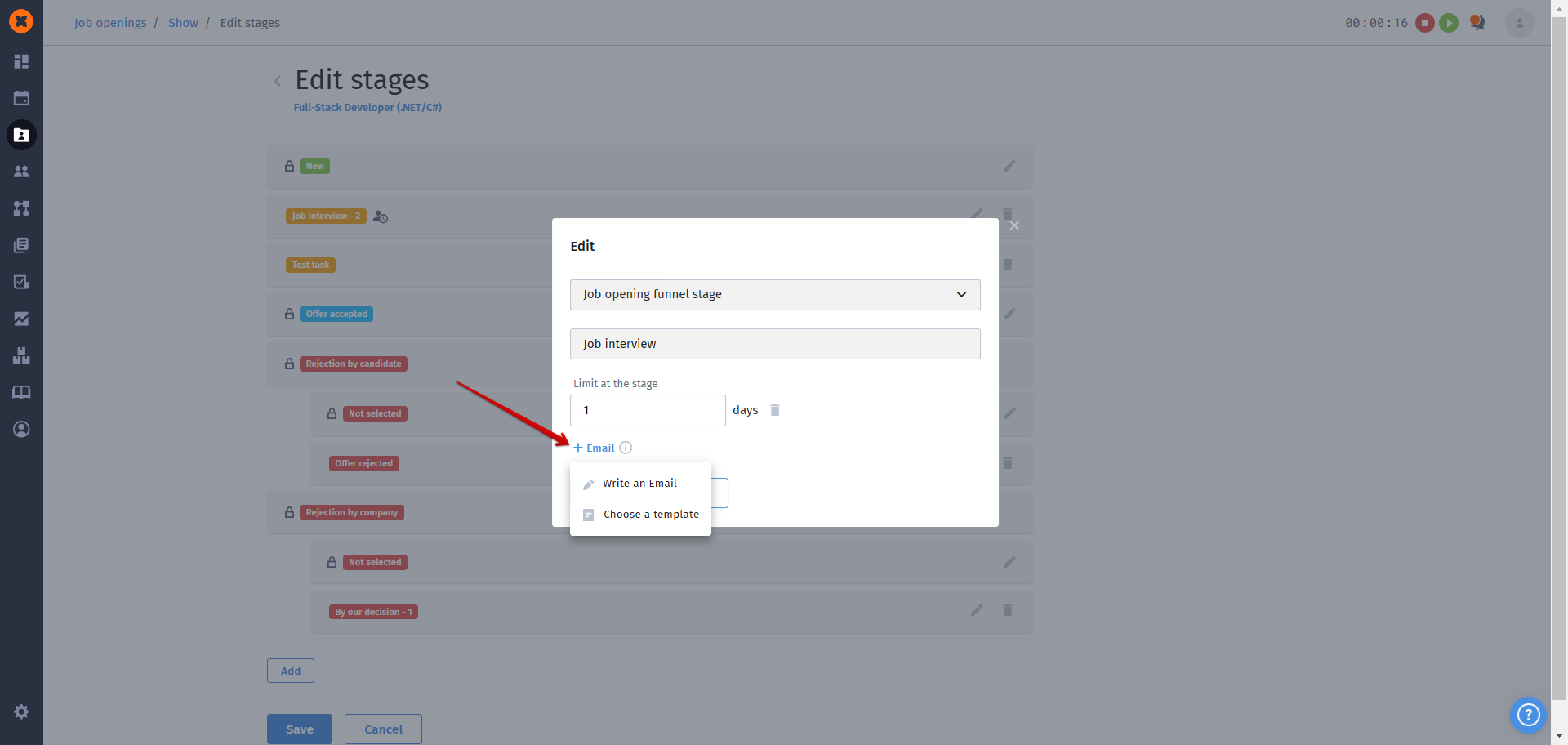
After creating the stages of the job opening and adding at least one candidate, a kanban board will be available within the vacancy, which forms the job opening funnel.
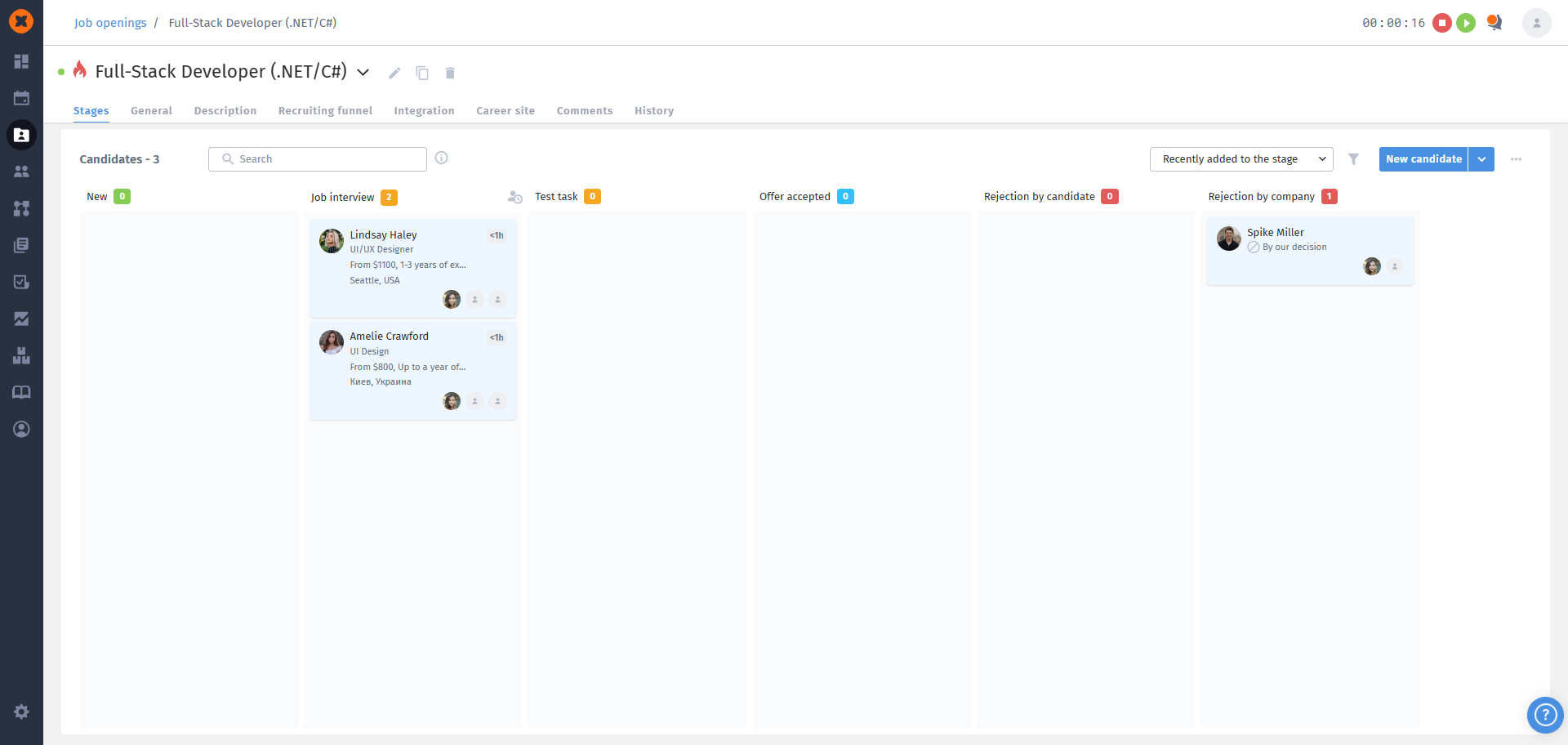
HURMA allows you to gather all candidates on a single kanban board without being distracted by external resources.
You can automate the collection of feedback from various sources and work with direct candidate sourcing using semi-automated tools.
You can read more about this in the "Working with the candidate database" article.
During the vacancy workflow, you can edit stages; however, it is not recommended to do so if the candidate selection process has started and they have been moved across the kanban board, as this may "break" your funnel.
For more convenient work, you can change the display of job opening stages using the menu. For example, if you don't need to see part of the funnel with job opening stages.
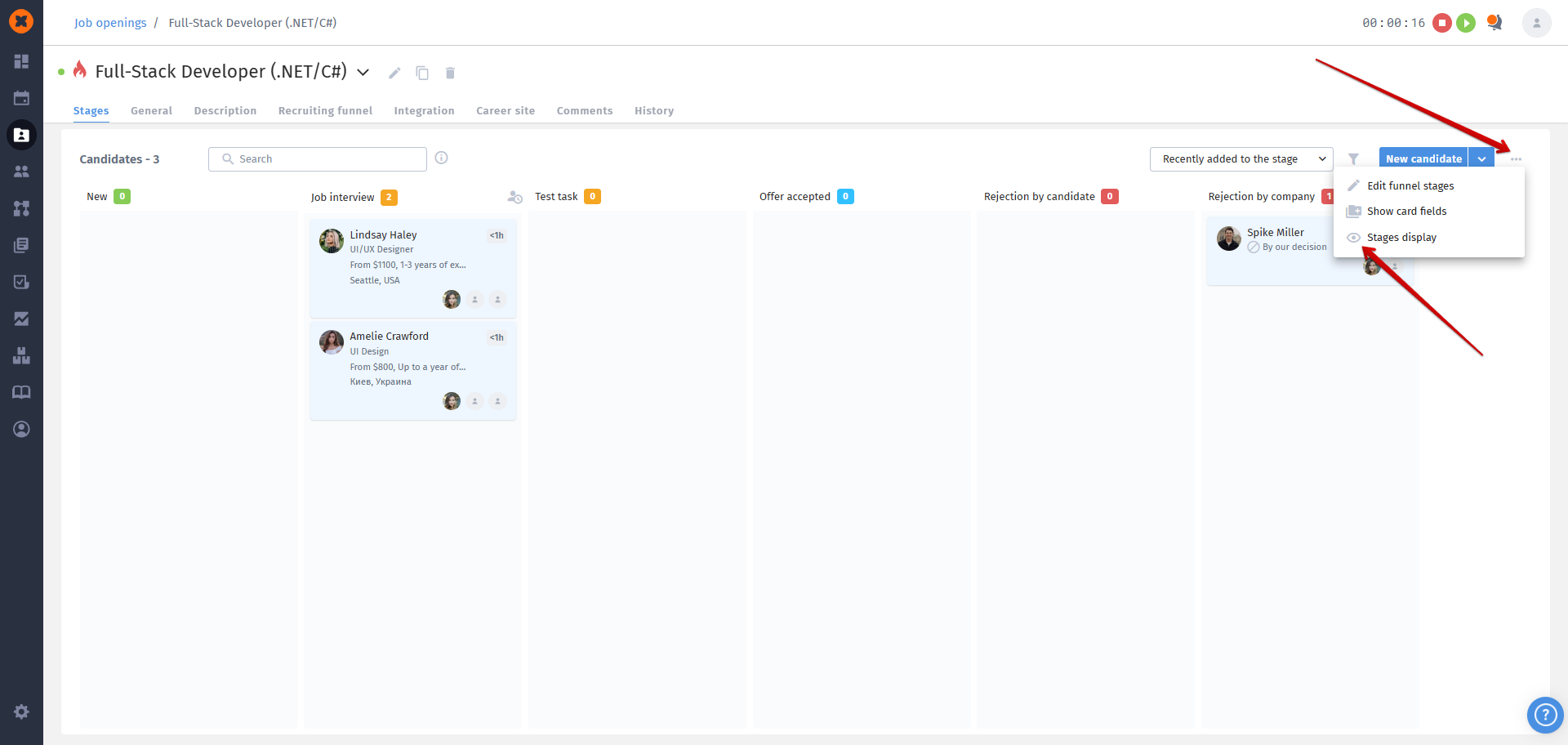
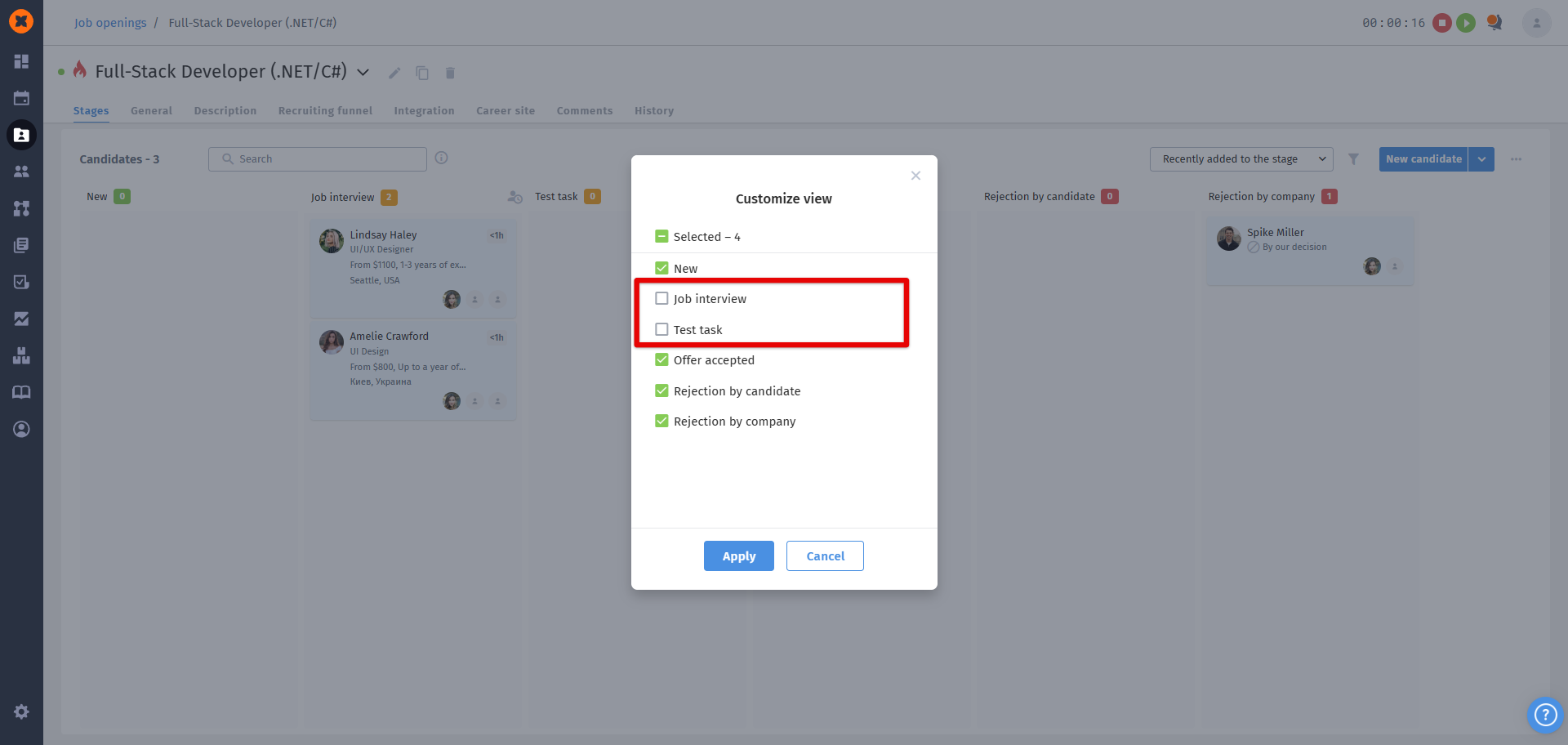
Also, you can choose which information from the candidate profiles you want to see on the kanban board.
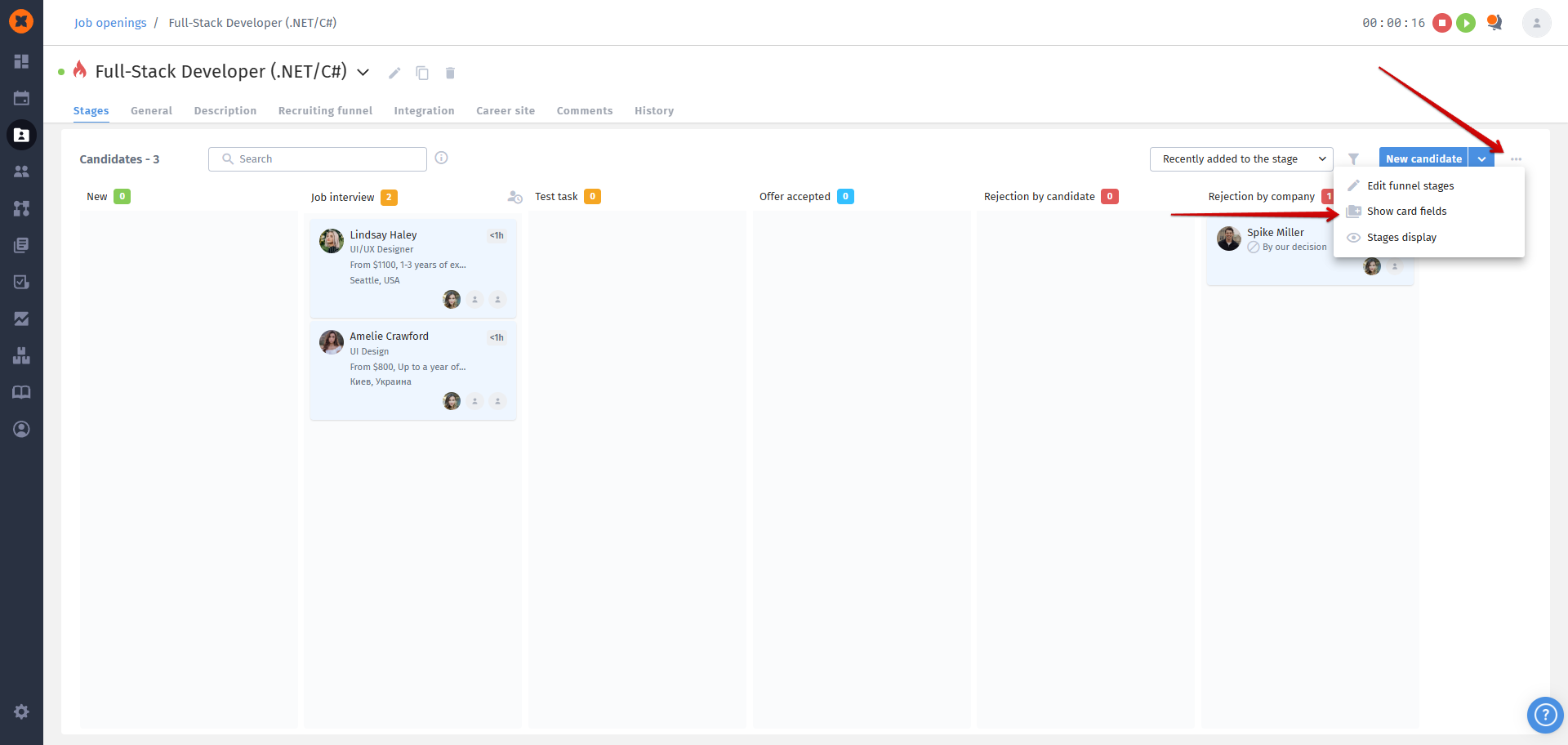
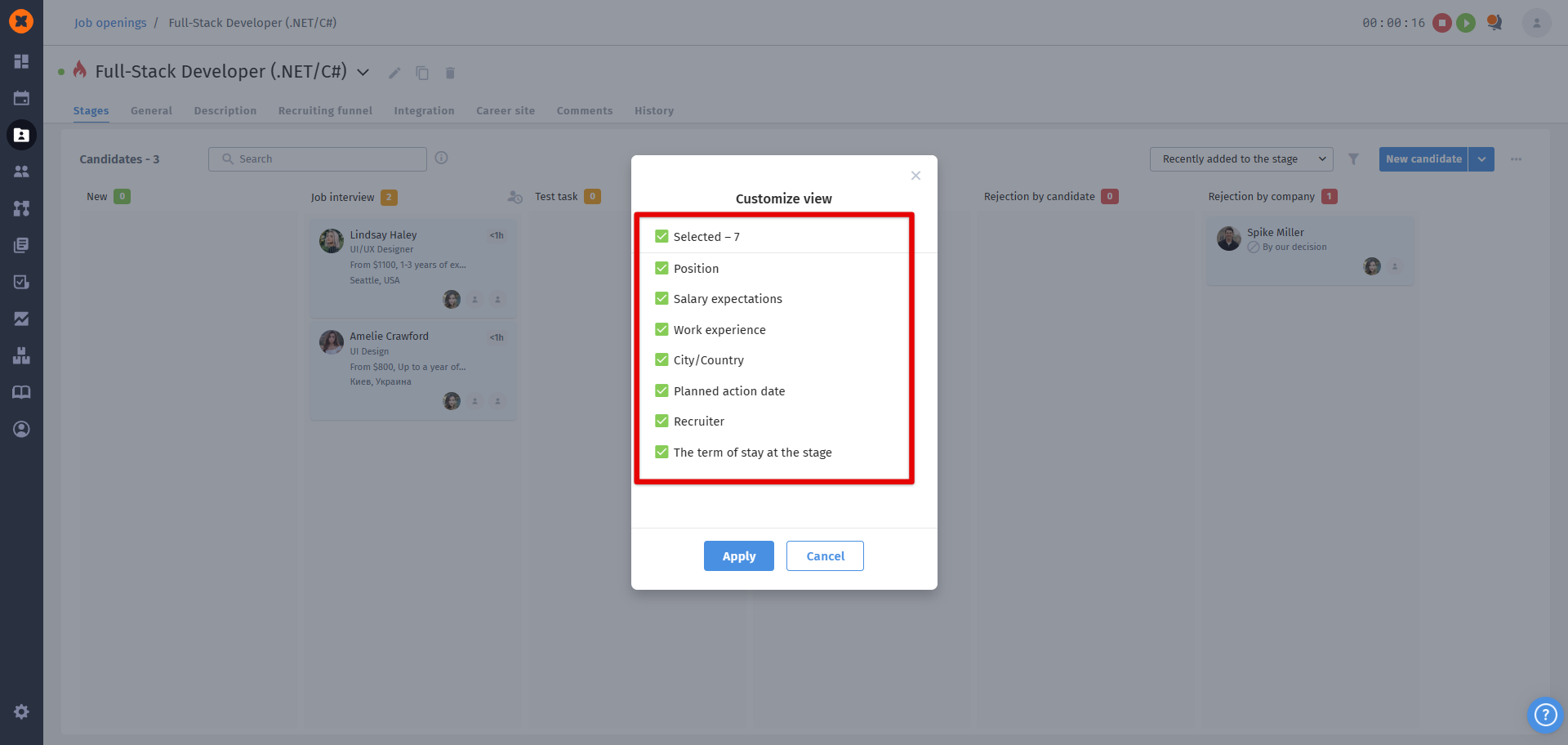
During the process of working on a vacancy, its status may change. In the HURMA system, the following statuses are available:
Open - the vacancy is open, but active work on closing it has not yet begun.
In Progress - active search and selection of candidates are ongoing for the vacancy (the days of job in progress are counted starting this status).
Paused - candidate search is suspended for some reason, or the position has been closed, but candidate refinement is needed.
Canceled - the vacancy closure is no longer relevant.
Closed - a suitable candidate has been found, and the vacancy is closed.
You can specify the status of a job opening when creating/editing it in the system, and you can also manage statuses in the job opening profile and on the "Job opening" page.
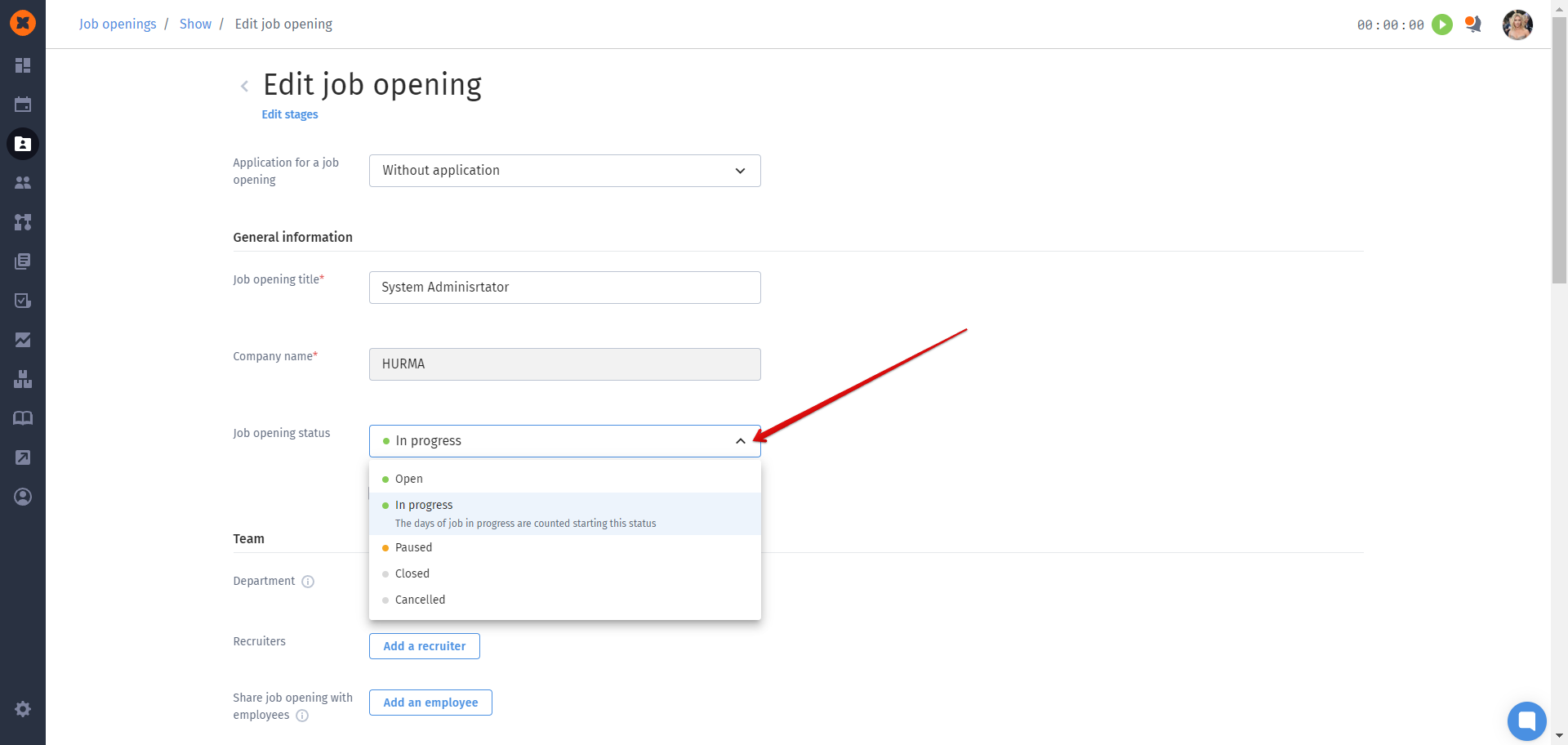
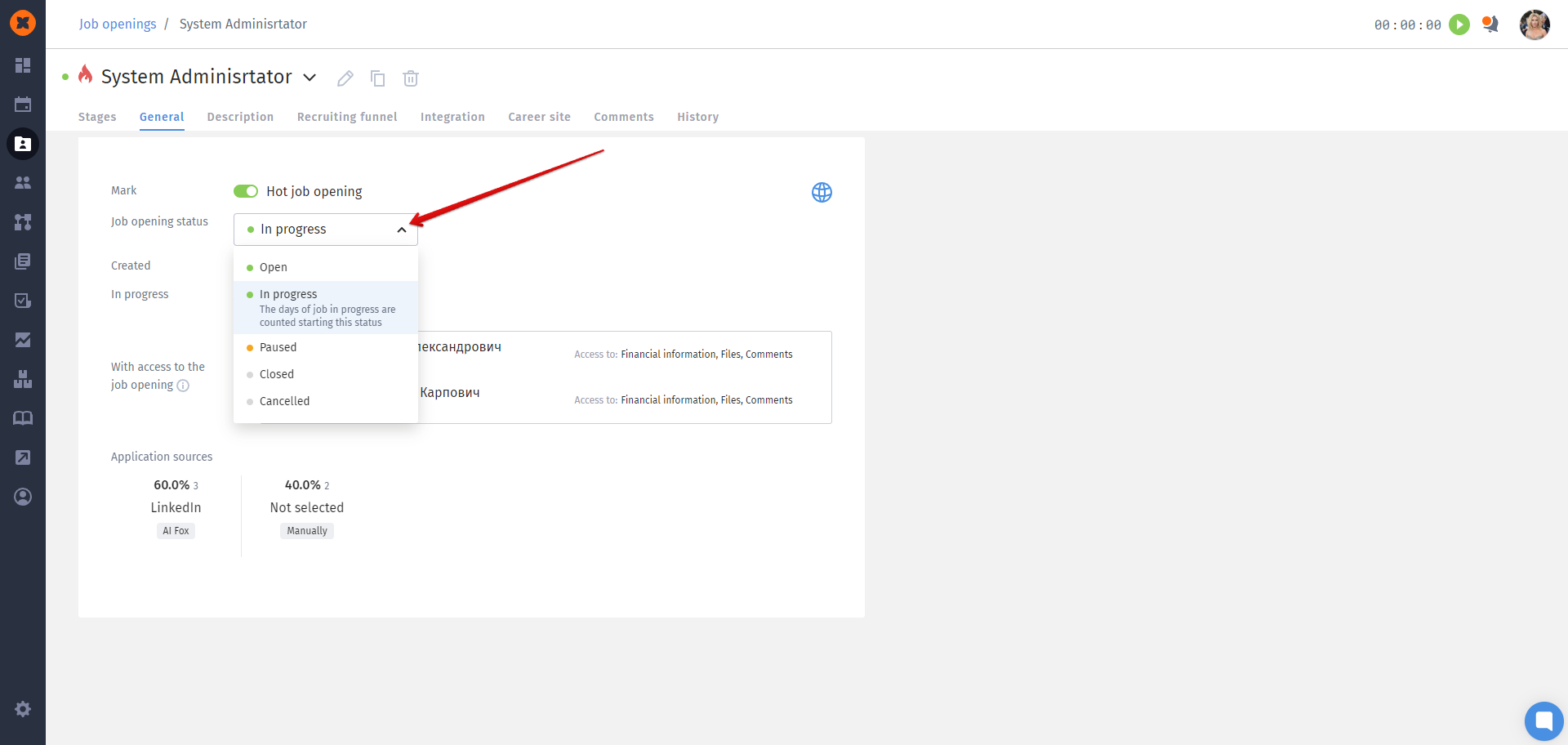
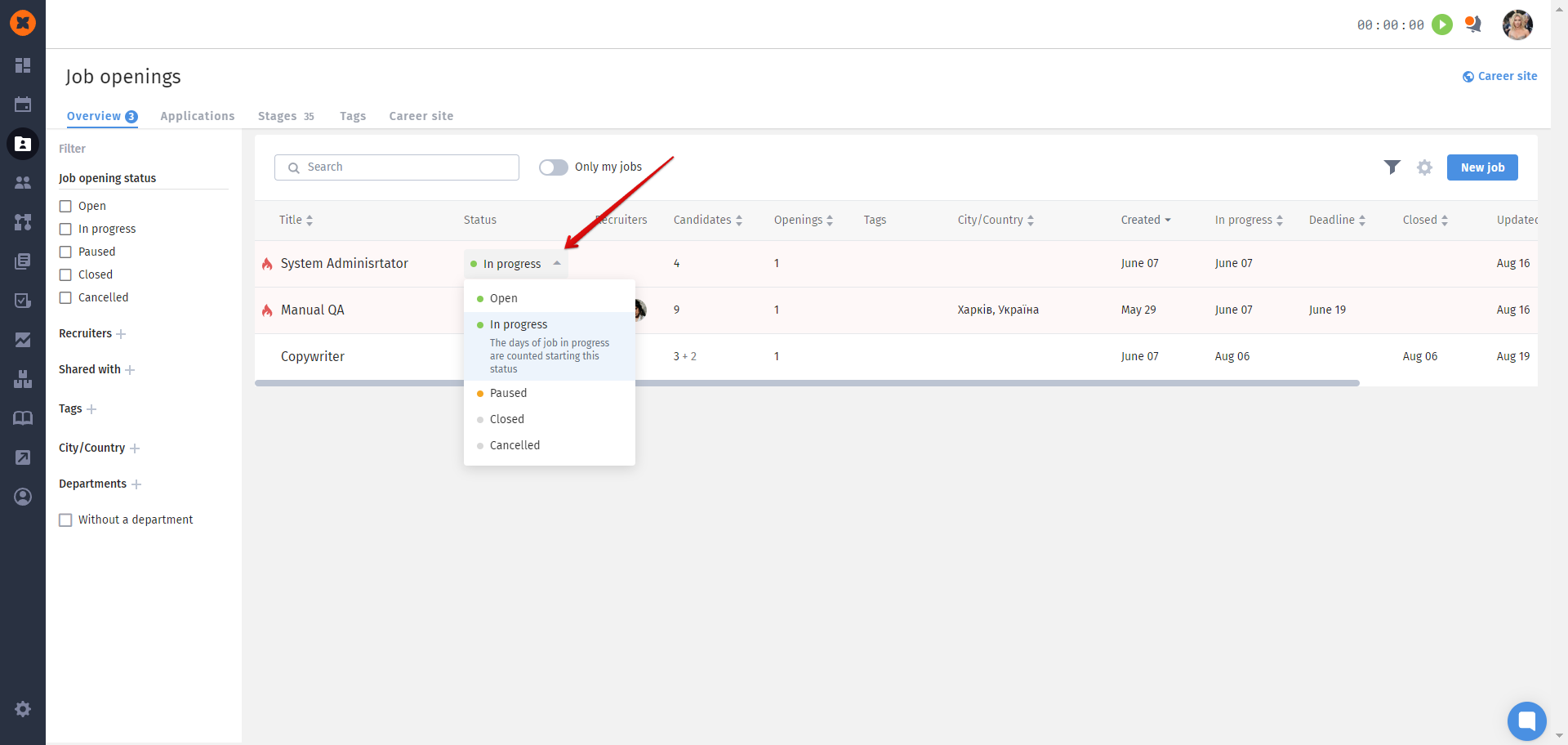
You can close and reopen a vacancy. On the "Job opening" page, you can edit, duplicate, or permanently delete it.
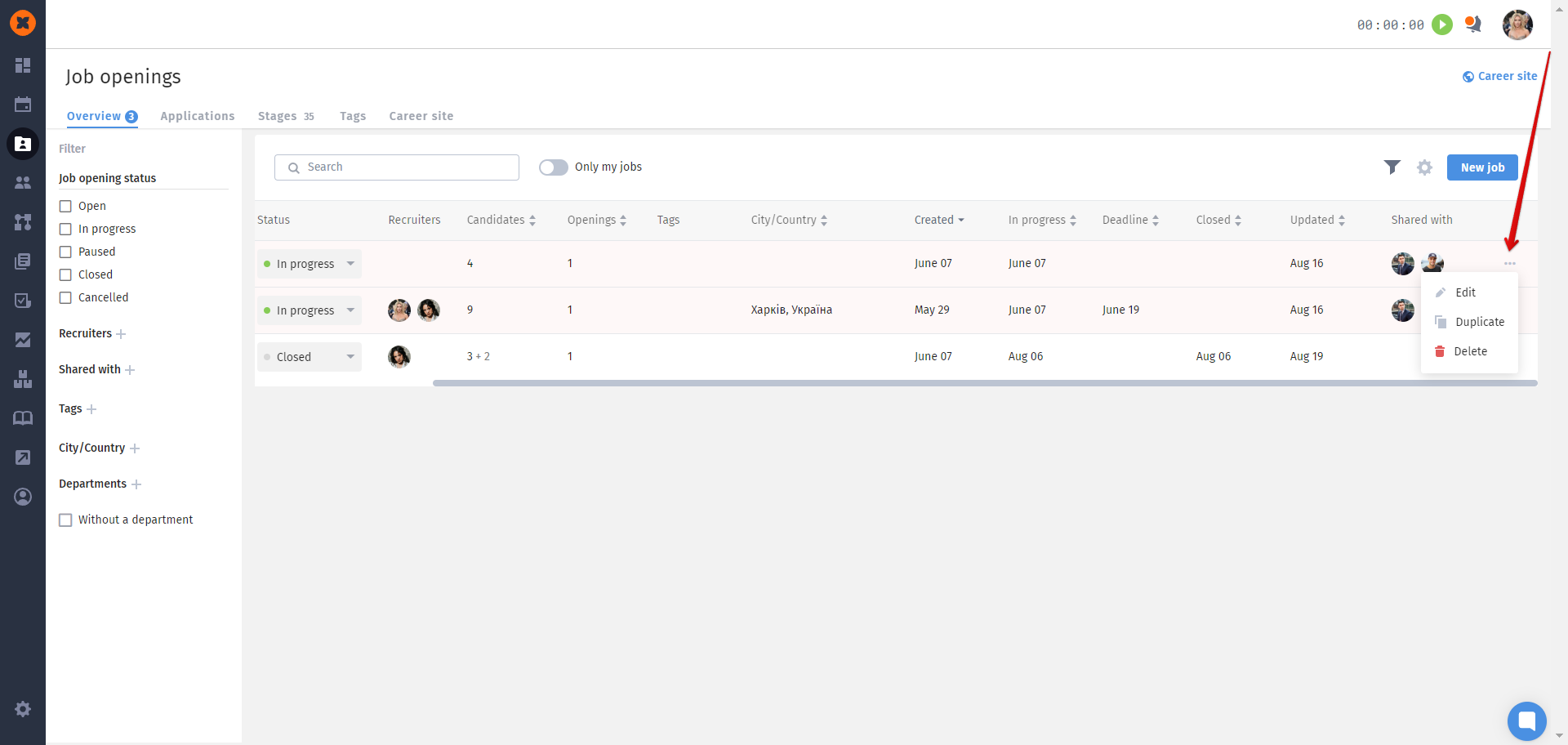
On the "Job opening" page, you can filter by clicking on the "funnel" icon.
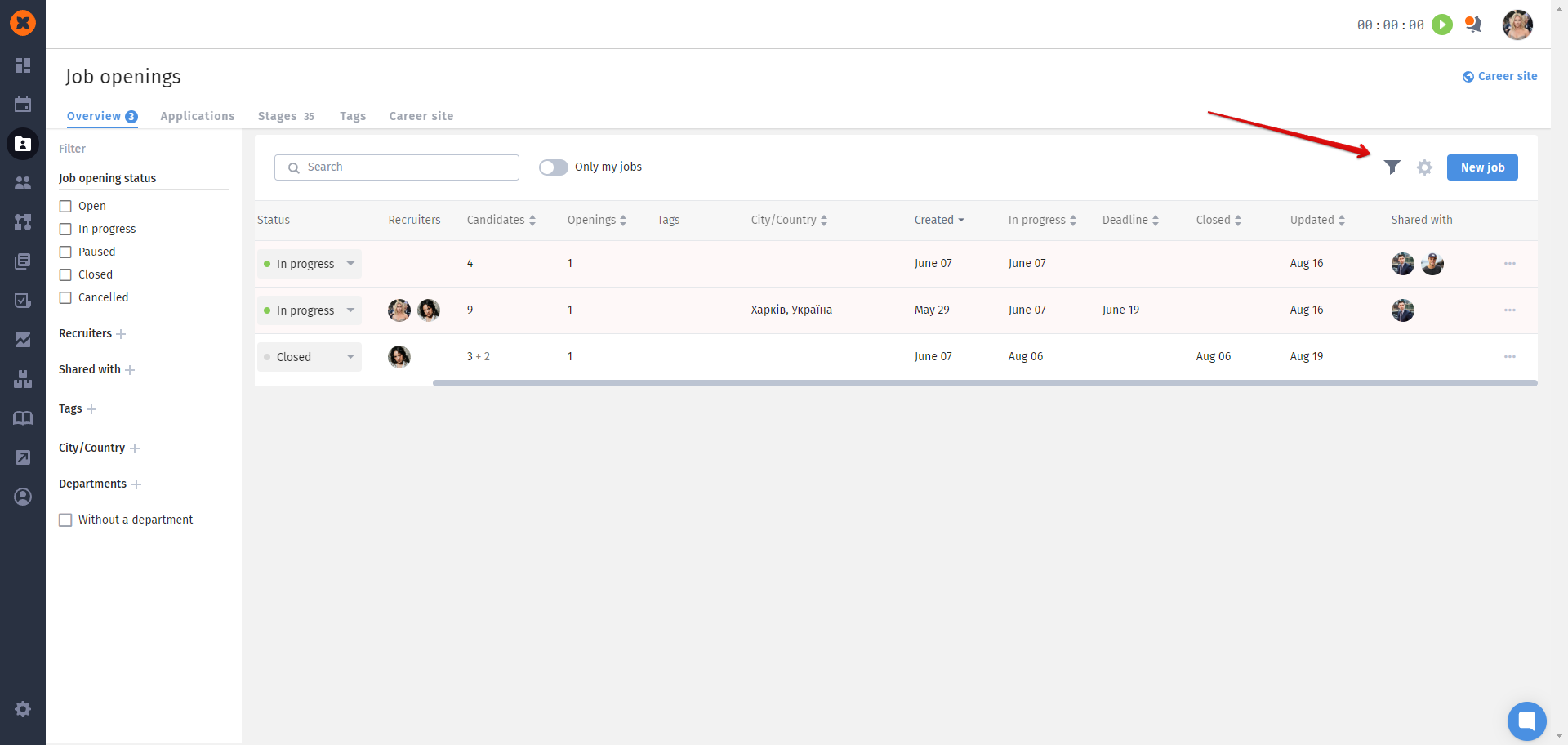
Filtering is available based on the following parameters:
job opening status;
Recruiters: recruiters assigned to the vacancy. You can also use the "My Vacancies" option to see vacancies where you are assigned as the recruiter;
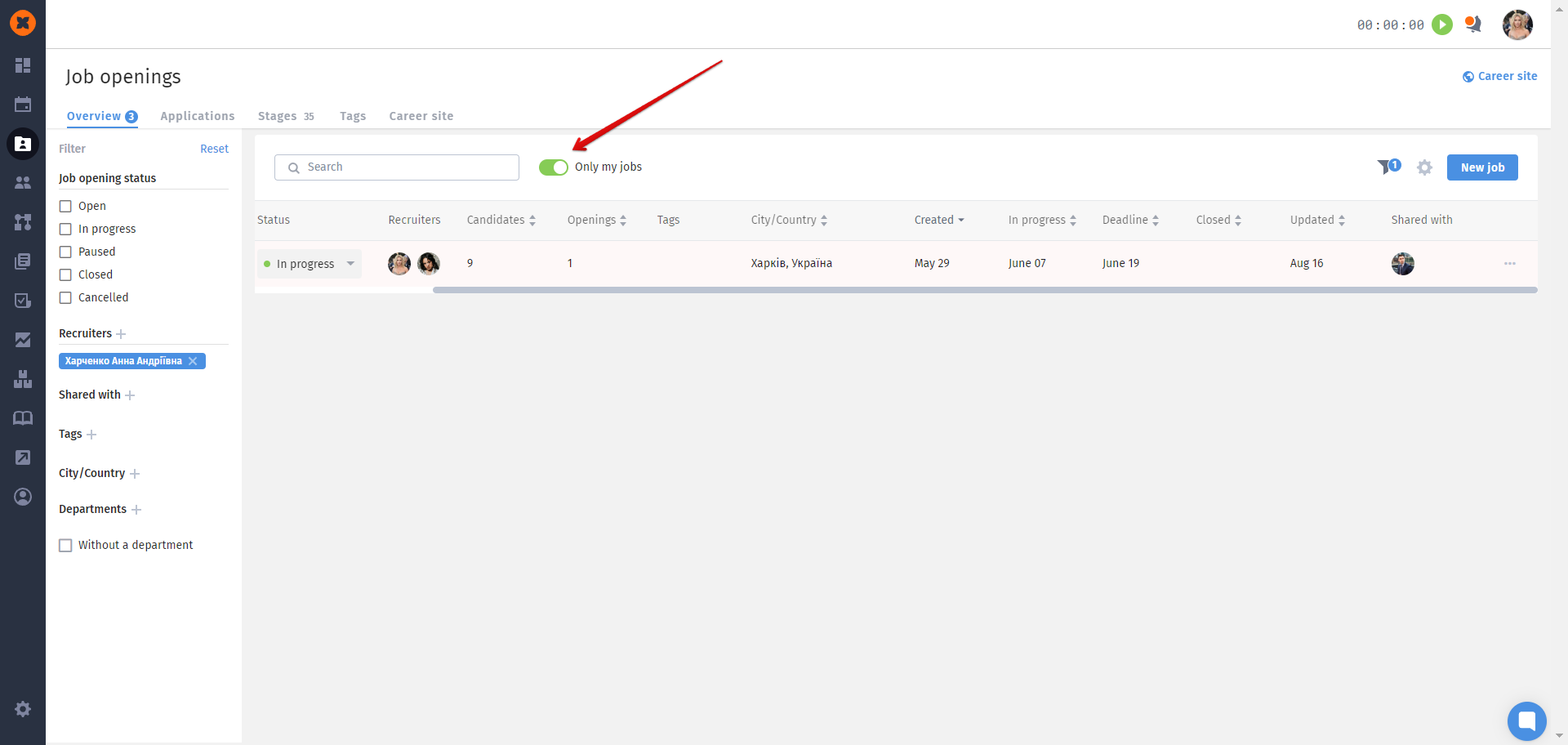
shared with: employees with restricted access to the job opening (hiring managers added to the vacancy through the "Share job opening with employees" option);
tags;
city/country;
departments: Departments to which vacancies are attached (departments help group vacancies and configure their visibility for recruiters).